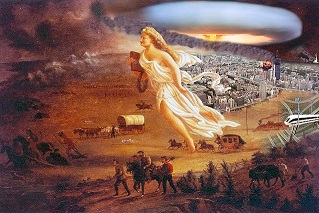The Greatest Gift For All
Christmas is a time of traditions. If you have found time in the rush before Christmas to decorate a tree, you are sharing in a relatively new tradition. Although the Christmas tree has ancient roots, at the beginning of the 20th century only 1 in 5 American families put up a tree. It was 1920 before the Christmas tree became the hallmark of the season. Calvin Coolidge was the first President to light a national Christmas tree on the White House lawn.
Gifts are another shared custom. This tradition comes from the wise men or three kings who brought gifts to baby Jesus. When I was a kid, gifts were more modest than they are now, but even then people were complaining about the commercialization of Christmas. We have grown accustomed to the commercialization. Christmas sales are the backbone of many businesses. Gift giving causes us to remember others and to take time from our harried lives to give them thought.
The decorations and gifts of Christmas are one of our connections to a Christian culture that has held Western civilization together for 2,000 years.
In our culture the individual counts. This permits an individual person to put his or her foot down, to take a stand on principle, to become a reformer and to take on injustice.
This empowerment of the individual is unique to Western civilization. It has made the individual a citizen equal in rights to all other citizens, protected from tyrannical government by the rule of law and free speech. These achievements are the products of centuries of struggle, but they all flow from the teaching that God so values the individual's soul that he sent his son to die so we might live. By so elevating the individual, Christianity gave him a voice.
Formerly only those with power had a voice. But in Western civilization people with integrity have a voice. So do people with a sense of justice, of honor, of duty, of fair play. Reformers can reform, investors can invest, and entrepreneurs can create commercial enterprises, new products and new occupations.
The result was a land of opportunity. The United States attracted immigrants who shared our values and reflected them in their own lives. Our culture was absorbed by a diverse people who became one.



























